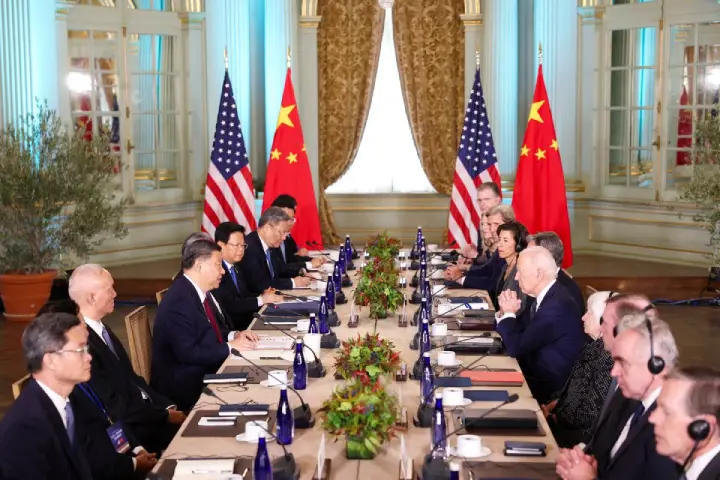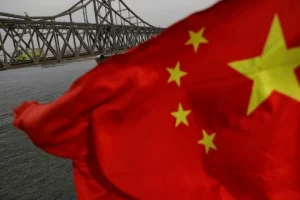As U.S. President Joe Biden met his Chinese counterpart Xi Jinping face to face after a year, it was “some of the most constructive and productive discussions we’ve had,” as the former put it. The United States would compete vigorously but responsibly with China “so it doesn’t veer into conflict or accidental conflict”, he said.
Both sides agreed to resume high level military-to-military contact that was discontinued last year after then US House speaker Nancy Pelosi visited Taiwan. They also agreed that China would crack down on production of ingredients for the drug fentanyl, responsible for many drug overdose deaths in the United States.
WATCH: US President Joe Biden and Chinese counterpart Xi Jinping go for a one-on-one stroll on the grounds of the Filoli estate south of San Francisco
Follow our free-to-read live blog for the latest updates https://t.co/I0cM8zRSAu pic.twitter.com/4QIOwVTY4z
— Bloomberg (@business) November 16, 2023
There was no common ground on Taiwan though, with Xi telling Biden that the island’s reunification with Taiwan was “unstoppable”.
Nobody expected big breakthroughs from the meeting given the frayed ties between the two countries but the idea was to reduce tensions. There’s no doubt that the U.S. has taken a significant turn away from the 1972 consensus under which President Nixon and Mao Zedong restored normal relationship between the two nations.
“There’s a structural problem between the two countries and the United States is feeling the competition much more and perhaps senses that it may have fallen behind in terms of competitiveness on technology and even in the defence field. Notwithstanding that, the U.S. now recognises that China is the second major power in the world. No other country has the economic or military capability to rival either the US or China. And therefore there is no option but to deal with the Chinese,” says former Foreign Secretary Vijay Gokhale, who’s just back after a month-long trip to the United States.
The U.S. faces multiple challenges—Ukraine war, the Middle East crisis and tension in the Taiwan Strait. These are three distinct theatres and despite its military might, the U.S. cannot handle the three together, Gokhale told StratNews Global in an exclusive interview.
“I think what they are trying to do in the last year of the Biden administration is to put some kind of a policy in place which both parties can agree to where the competition will remain and where the U.S. policy of de-risking will continue but it will not degenerate into an adversarial situation where the U.S. will have to divert its attention towards China when it has so many other issues on its plate.”
On the other hand, China’s support to the Palestinian cause reflects a calibrated move in which it sees the crisis in the Middle East as an opportunity to weaken the American position there. “They began that process when they brokered the deal between Saudi Arabia and Iran. Now they see yet another chance to make geopolitical inroads into the region; geo-economically they are already there,” says Gokhale. Xi Jinping may be facing several problems within China but on the foreign policy front, the country seems to be doing fairly okay, he added.
Biden knows that. Hours after the summit with Xi, he held a press conference in which he was asked if he would still say Xi was a dictator as he had said in June, which angered China then.
The U.S. President stood his ground: “I mean he’s a dictator in the sense that he’s a guy who’s running a country, a Communist country that’s based on a form of government totally different than ours.”
Fight when you talk or talk when you fight, call it what you will.
Also Read: Have China and the United States achieved a breakthrough during Xi-Biden talks?
(The article first appeared in StratNews Global and has been published with permission)




















